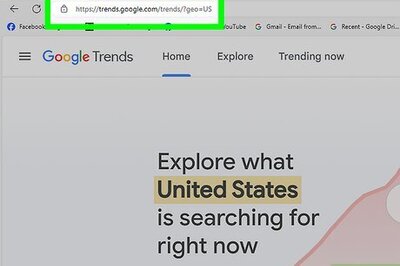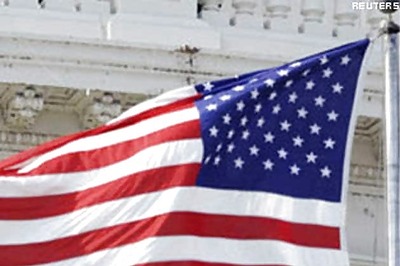
views
Washington: The US will seek economic sanctions on Iran if the UN Security Council does not "fulfill its responsibilities" in pressing the Iranians to suspend its nuclear program, the US ambassador to the UN said Tuesday.
"If we were not successful in getting the extent and scope of the sanctions that we wanted, if we were faced with a veto by one of the permanent members, if for whatever reason the council couldn't fulfill its responsibilities," then the United States would work with other countries to impose sanctions, John Bolton told a US House committee.
Bolton also said that the Iranians have been using the county's oil as leverage with countries, including India, China and Japan, "to protect themselves from this kind of pressure."
Of the five permanent Security Council members with veto power, the United States, Britain and France are expected to back sanctions if Iran refuses to suspend its nuclear program.
Iran announced last month it was ready to embark on a large scale uranium enrichment program. It said it is legally entitled under the Nuclear Nonproliferation Treaty to provide fuel for civilian power plants. (Watch Iran's young elite support nuclear goals)
The US and some other nations are concerned that Iran's nuclear program will be used to produce weapons.
The US envisages imposing a restriction of trade in equipment that has both civilian and military uses, as well as the banning of travel and freezing the assets of key Iranians involved with the nuclear program.
But Russia and China have so far opposed sanctions, even though they agree that Iran should not be allowed to develop nuclear weapons.
On Tuesday, Iran's foreign minister was quoted as saying that Russia and China had officially informed Iran that they would not back sanctions or military action over Iran's nuclear program.
In Paris, diplomats from the United States, France, Britain, Germany, China, Russia and the European Union tried to hash out a strategy for pressuring Iran to bring its nuclear program into compliance with international non-proliferation protocols.
Going into the meeting, US Undersecretary of State Nicholas Burns said he thought a 'serious' resolution would emerge at the United Nations in the next few days demanding that Iran suspend its nuclear program.
Such a resolution would be passed under Chapter 7 of the UN Charter. A resolution under Chapter 7 makes any demands mandatory and paves the way for the use of sanctions and possibly force.
If Iran refused to comply, an effort to get the council to pass a sanctions resolution would follow "probably in a month or so," Burns said.
But after the meeting, Burns told reporters that the diplomats had agreed the Security Council should begin negotiating a resolution that would lead to suspension of Iran's nuclear program without mentioning Chapter 7 compliance or a sanctions resolution.
Though the diplomats issued no joint declaration about what they had decided, Burns told reporters that "everyone agreed on the need for a firm UN Security Council response to the Iranian nuclear program."
The six foreign ministers will meet again in the United States starting Monday.
In his testimony to Congress, Bolton said it was possible that a Chapter 7 resolution demanding that Iran suspend its nuclear program could clear the Security Council with abstentions by Russia and China.

















Comments
0 comment